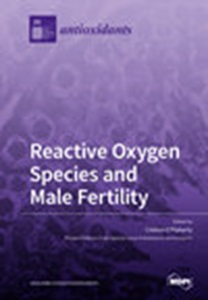吲哚-3-甲醛通过抑制 ROS 生成和 NLRP3 炎症小体激活缓解 LPS 诱导的肠道炎症
IF 6
2区 医学
Q1 BIOCHEMISTRY & MOLECULAR BIOLOGY
引用次数: 0
摘要
吲哚-3-甲醛(IAld)是一种来自肠道微生物群的色氨酸(Trp)代谢物,对肠道炎症性疾病具有潜在的保护作用。NOD 样受体家族含吡啶域 3(NLRP3)炎性体的异常激活是肠道炎症的一个重要原因。然而,IAld对NLRP3炎性体活化的影响和机制仍不清楚。在这里,我们发现IAld能抑制肠上皮细胞中NLRP3炎性体的活化,并有效防止脂多糖(LPS)刺激引起的肠上皮屏障损伤。从机理上讲,我们证明了 IAld 能激活芳基烃受体(AhR),进而阻止活性氧(ROS)的产生,维持线粒体膜电位,阻断肠上皮细胞的 NF-κB/NLRP3 炎症通路。AhR特异性抑制剂CH-223191也能有效阻断IAld诱导的NLRP3抑制和肠上皮屏障修复。此外,体内研究结果表明,IAld能阻止LPS诱导的小鼠体内促炎介质的产生和肠道炎症损伤,这与AhR激活和NLRP3炎性体抑制有关。总之,我们的研究揭示了IAld是一种有效的内源性抗氧化剂,并建议将AhR作为NLRP3诱导的肠道炎症性疾病的潜在治疗靶点。本文章由计算机程序翻译,如有差异,请以英文原文为准。
Indole-3-Carboxaldehyde Alleviates LPS-Induced Intestinal Inflammation by Inhibiting ROS Production and NLRP3 Inflammasome Activation
Indole-3-carboxaldehyde (IAld) is a tryptophan (Trp) metabolite derived from gut microbiota, which has a potential protective effect on intestinal inflammatory diseases. Abnormal activation of NOD-like receptor family pyrin domain-containing 3 (NLRP3) inflammasome is an important cause of intestinal inflammation. However, the effect and mechanism of IAld on NLRP3 inflammasome activation remain unclear. Here, we found that IAld inhibited the activation of the NLRP3 inflammasome in intestinal epithelial cells, and effectively prevented intestinal epithelial barrier injury caused by lipopolysaccharide (LPS) stimulation. Mechanistically, we demonstrated that IAld activated the aryl hydrocarbon receptor (AhR), subsequently prevented reactive oxygen species (ROS) production, maintained mitochondrial membrane potential, and blocked the NF-κB/NLRP3 inflammatory pathway in intestinal epithelial cells. Also, the AhR-specific inhibitor CH-223191 effectively blocked the IAld-induced NLRP3 inhibition and intestinal epithelial barrier repairment. In addition, in vivo results showed that IAld prevented pro-inflammatory mediator production and intestinal inflammatory damage in LPS-induced mice, which is related to AhR activation and NLRP3 inflammasome inhibition. Collectively, our study unveiled that IAld is an effective endogenous antioxidant and suggested the AhR as a potential treatment target for NLRP3-induced intestinal inflammatory diseases.
求助全文
通过发布文献求助,成功后即可免费获取论文全文。
去求助
来源期刊

Antioxidants
Biochemistry, Genetics and Molecular Biology-Physiology
CiteScore
10.60
自引率
11.40%
发文量
2123
审稿时长
16.3 days
期刊介绍:
Antioxidants (ISSN 2076-3921), provides an advanced forum for studies related to the science and technology of antioxidants. It publishes research papers, reviews and communications. Our aim is to encourage scientists to publish their experimental and theoretical results in as much detail as possible. There is no restriction on the length of the papers. The full experimental details must be provided so that the results can be reproduced. Electronic files and software regarding the full details of the calculation or experimental procedure, if unable to be published in a normal way, can be deposited as supplementary electronic material.
 求助内容:
求助内容: 应助结果提醒方式:
应助结果提醒方式:


